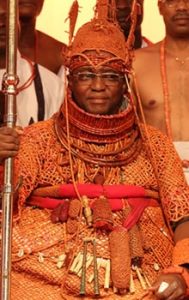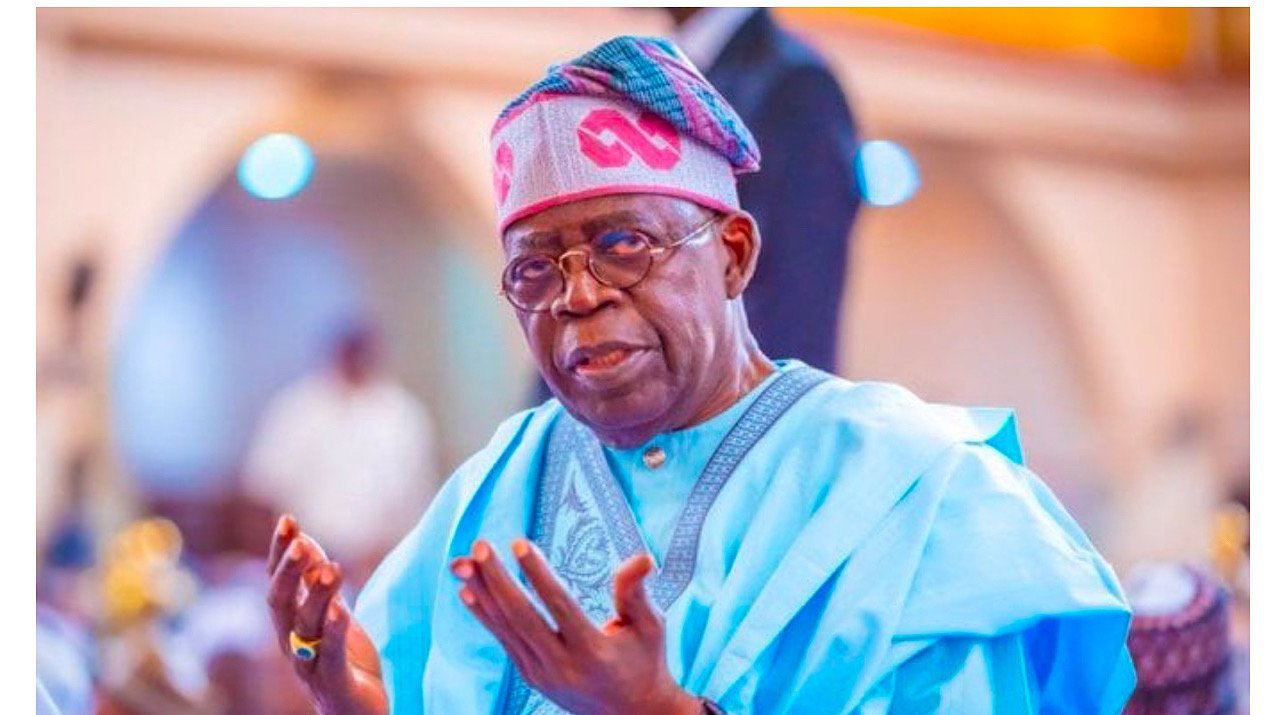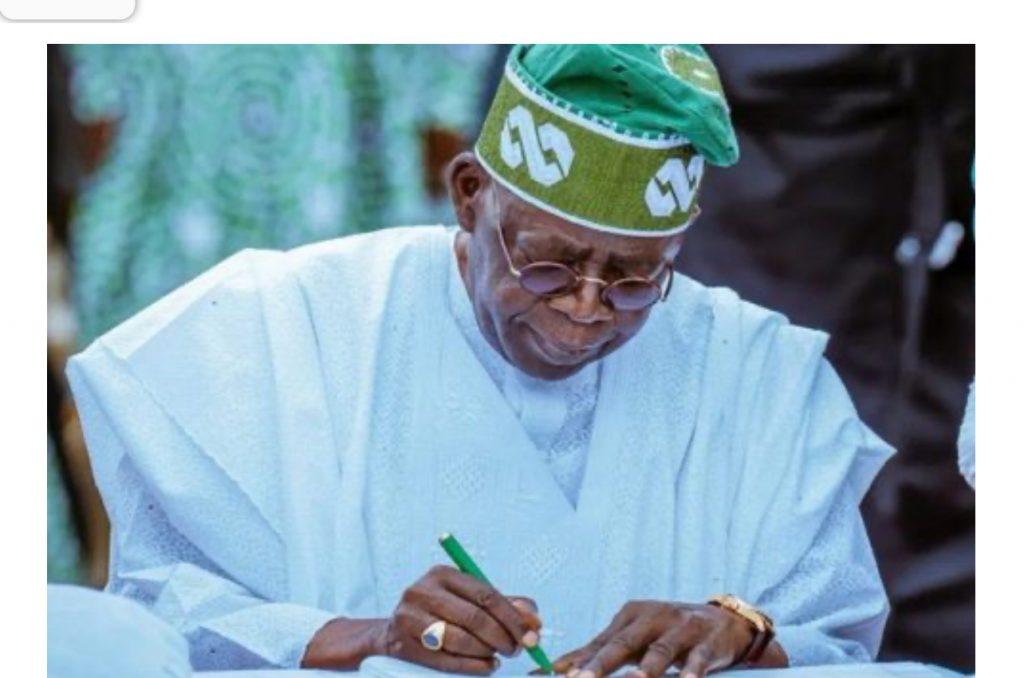news
THE MENTION OF THE NAME, PERE OF OLODIAMA CLAN, EVOKES UGLY MEMORIES

In 1986, one Timothy Ofunama, issued a statement saying that Gelegele belonged to Ijaw and that the Oba of Benin had no jurisdiction over it in the welcome address I presented when Omo N’Oba Ewuare II visited Obazuwa on January 28, I enumerated some of the provocative acts of the Ijaws. We wish to state some of them here again.
In 1985, Philips Oil Company established business in Ughoton. It built a Flow Station in Gelegele. Ijaw fishermen, who lived in stilt-houses around the swamps, came out and began to supply labour to the company. Many of the Benin youths in Ughoton and Gelegele had left the villages in search of a better life in the City. When they heard of the new company and the job opportunities if offered, they returned home to seek employment. The Ijaws were not happy at their return. They feared they would displace them (the Ijaws) in competition for jobs. Suddenly, they attacked the returnees. The attack was so violent and widespread that the government setup an administrative panel, headed by Mr. S. Jamgbadi, a Senior District Officer, to look into it. Part of the panel’s report reads:
“… it is however established that the Ijaws have been resident in Gelegele for many years and that during these years they have acquired landed property and cultivate farms but from the facts in evidence they qualify as TENANTS on the land their long period of occupation notwithstanding…”
The Ijaws were not done yet with agitation. They agitated again, the same year, against Philips Company itself. The cause of the agitation was that the company also gave employment to non-Iyaw persons. Government again set up an inquiry to look into the crisis. Part of the panel’s report reads:
“… The inquiry further revealed that the claims by the Ijaws to the monopoly of employment provided by the oil company are not only unpatriotic but also preposterous. The Ijaws have no right whatsoever to prevent the oil company from employing persons of their choice; they should stop threatening the oil company from employing other persons who are not Ijaw…”
On Thursday, November 20, 1986, as said earlier, Timothy Ofunama, in the publication in the Nigerian Observer said that Gelegele belonged to Ijaw and that the Oba of Benin had no jurisdiction over it. The government reacted to the publication through a press statement issued by the Honourable Commissioner for Local Government, Engr. Enoch Ejofodomi. I reproduce the statement here in full.
1. My attention has been drawn to a publication at page 4 of the Nigerian Observer Newspaper of Thursday, 20th November, 1986 titled “Public Notice” and credited to one Timothy Ofunama who styled himself as the “Ama-Okosuwei of Gelegele”. In which he gave the impression that the traditional administration of Gelegele was under the “Pere of Olodiama Clan” and other Ijaw Chiefs in Ovia Local Government Area of Bendel State.
2. From records available in my Ministry, there is no chieftaincy title known as the “Pere of Olodiama Clan” in Ovia Local Government Area. Also there are no chieftaincy titles known as “Ama-Okosuwei of Gelegele” and “Amanana-Owei of Gelegele”, as claimed in the above mentioned publication. In this regards the Government couldn’t have appointed anybody to these non-existent chieftaincy stools.
3. The author of the above mentioned vexations publication also gave the impression that the Oba of Benin has no right to confer the chieftaincy title of “Okao of Gelegele” on Chief I. Iyonmahari and that Gelegele and some other Ijaw towns in Ovia Local Government Area are not under the jurisdiction of the Oba of Benin. In this regard, my Ministry wants to make it abundantly clear that the Oba of Benin who is the traditional paramount ruler in Benin kingdom is the Prescribed Authority for Oredo, Orhionmwon and Ovia Local Government Areas by virtues of Bendel State Legal Notice 44 of 1979 published in the Bendel State Legal Notice 44 of 1979 published in the Bendel State of Nigeria Extraordinary Gazette No. 51. Vol. 16 of 28th, September, 1979; He therefore acted within his constitutional powers: as the prescribed Authority for the area ‘when he appointed Chief I. Iyonmahan as the Okao of Gelegele. It is also pertinent to point out that Gelegele in Ovia Local Government Area is part and parcel of Bini land under the jurisdiction of the Oba of Benin having regard to the judgment of the Supreme Court of Nigeria delivered on 11th August, 1983 which made it clear that the land known as Gelegele belongs to the Binis.
4. In the light of the foregoing, Government sews the action of Timothy Ofunama who calls himself the “Ama-Okosuwei of Gelegele” as an attempt to incite the law abiding Ijaw citizens in Gelegele against their host as capable of causing serious disaffection among the entire community in that part of Ovia Local Government Area. I want to stress that Government will not tolerate that state of affairs which is capable of jeopardizing the peace, order and good government in the area.
5. For the purpose of clarification, it is considered necessary to inform the general public that it is not only contemptuous to reopen an issue on which the Supreme Court had already delivered judgment but that it is also unlawful for anyone to call himself a chief or allow himself to be so called or addressed if he has not been conferred with a chieftaincy title by a competent authority and has not been registered by the Ministry of Local Government as a Chief.
6. Finally, I want to warn that all those who are party to the aforementioned publication should desist forthwith from parading themselves either as traditional rulers or as traditional chiefs as the penalty for their actions under Sections 20 and 26 of the Traditional Rulers and Chiefs Law, 1979 is imprisonment for six months and two years respectively without an option of a fine.
(Engr. Enoch Ejofodomi)
Commissioner for Local Government
Ministry of Local Government
Benin City.
10th December 1986
The Ijaws still claim ownership of Gelegele. Yet, the question of who owns Gelegele had gone through litigation and had long been settled.
At the High Court of Justice, Benin, in suit B/44/1970, Judgment was delivered in favour of Benins by Honourable Justice Ekeruche on December 22, 1978. Part of the judgment reacts.
“…finally, I enter judgment in this case as follows: for the avoidance of all doubts, argument or controversy, I hear say unequivocally, that Gelegele village and its environs and bushes are Benin land. They do not belong to the Ijaws of Gelegele as owners. The Ijaws are tenants of His Highness Akenzua II the Oba of Benin. Apart from above, the plaintiffs’ claims are dismissed in their entirety”.
Dissatisfied with the judgment, the Ijaws went to the Court of Appeal, Benin. The court dismissed their appeal and delivered judgment in favour of Benin. The lead judgment was read by Honourable Justice Abdul Ganiyu Agbaje on December 16, 1981.
Still on satisfied, they headed for the Supreme Court. In Suit SC. 131/1/1982, Honourable Justice, Muhamadu Lawani Uwais (CJN) and four (4) others, on August 19, 1983 also dismisses their appeal and up-held the judgment of the lower courts. The CJN concluded thus:
“… For three reasons I am of the opinion that the appellants’ argument in support of the sole ground of appeal should be discountenanced. The appeal therefore fails and it is dismissed with N300.00 costs to the respondents. The decision of the Federal Court of Appeal is affirmed…”
The Supreme Court awarded costs against the Ijaws. Despite these judgments, the various reports and government statements, the Ijaws still claim ownership of Gelegele!
In 1987, they attacked Benin indigenes in Iko and Isekiri and Urhobo settlers there. They destroyed the Ogua-edion in Iko, they moved up-hill, to Ikonoke and unleashed mayhem. Benin indigenes in Ikonoke and in Ikonugboghodo fled, giving room to the Ijaws to entrench themselves in both places. At that time and up till the early 90s, one Pa Igbinosun, a Benin man, was the Odionwere of Iko, they have forayed into Agbomoba, Ozomu, Igbobi, Ekete, Ite, Orogo, Ewudu, Abiala, Eki-ohuan (now known as Ekewan), Okomu and Gelegele. They maim the Benin people in these communities and destroy their properties.
In June 2011, we, offered a parcel of land to Edo State government for the erection of a model school block. The Government sent a team led by the Permanent Secretary, Ministry of Education, then Mrs. Idaho is now the Head of Service. In anticipation of the inspection, we directed Obazuwa boys to demarcate the plot. As the boys were measuring it, Ijaws militants descended on them with machetes, guns, and clubs. Without any provocation, they brutalized the boys and abducted two of them. Obazuwa boys were unnamed and defenseless.
We sent an S.O.S to the Governor who directed his Chief of Staff, then Barr. Osarodion Ogie, to take up the matter with the Commissioner of Police. The Police Commissioner promptly dispatched a team of policemen from Evbotubu Police Station to rescue the abducted boys. He sent another team from SARS to arrest the militants who brutalized the boys, destroyed their motorcycles and a car. Those arrested were charged to Okada Magistrate’s Court where the case is still pending up till now.
In order to strengthen their claim of ownership of Gelegele, they have now coined names, Gelegelegbene and Gelegele-ama. These names are new. In all their previous write-ups and the dispatches by early European visitors. Gelegele had always been known and spelt as Gelegele. The use of Gelegelegbene and Gelegele-ama which they have only recently coined is ludicrous and intellectually dishonest.
Our people got judgment in the Supreme Court 34 years ago. Now they want to claim their judgment right. Those who were driven away from their homeland, Abiala, and Ikon’oke, want to return home. They want to erect a house in Gelegele for the Okao of Gelegele who was installed there by the Oba of Benin.
The Edo State Ijaws are bellicose, belligerent, militant, quarrelsome and unfriendly. They are fighting the Itsekiris in Warri; they are fighting the Urhobos, the Ibibios and the Ilajes. They are claiming land whereas they traditionally live in swamps along the coastal areas in houses they build on stilts.
The so-called Beni-Ebe, Toru-Ebe Kengama and Abadi States which they requested the Senate to create for them in 2009, traverses the whole of the Nigerian coastline, encroaching of Benin, Ibibio, Ilaje and Itsekiri territories.
We plead for your support in curbing the Ijaw aggressiveness and in enforcing the Supreme Court Judgment for which the Ijaws have rudely insulted the highest court in the Country, Honourable Justice, and the Chief Justice of Nigeria whom they contemptuously described as fraudulent.
This press statement was endorsed by HRH Prince Edun Akenzua, MFR, FNGE, Ogie-Obazuwa and six other Enigie for on behalf of 48 communities in the affected areas in the Benin Kingdom.
news
Security Reform: Tinubu Calls for Urgent Constitutional Backing for State Police


…raises fresh alarm over terrorism, banditry at State House Iftar
…Akpabio pledges more support, vows no executive bill will die in Senate
President Bola Ahmed Tinubu on Wednesday night formally urged the Senate to begin the process of amending the 1999 Constitution to provide for the establishment of state police, declaring that Nigeria must urgently restructure its security architecture to confront terrorism, banditry and insurgency.
Speaking at an interfaith breaking of fast with the leadership and members of the Senate at the State House, Abuja, the President said the time had come for lawmakers to “start thinking” about embedding state policing in the Constitution to enable governments at subnational levels better secure their territories.
“Nigeria is extremely challenged, we are facing terrorism, banditry, insurgency, but you never failed to make a right response to these calls. What I will ask for tonight is for you to start thinking how best to amend the Constitution to incorporate the state police for us to secure our country, take over our forests from marauders, free our children from fear”, Tinubu said.
The President’s latest appeal adds momentum to a campaign he has sustained since early in his administration.
In February 2024, during an emergency meeting with the 36 state governors at the State House, Tinubu approved the creation of a joint committee of federal and state representatives to explore modalities for establishing state police, insisting that the country must “move aggressively” to improve security of lives and property.
He renewed the call in November 2025, urging the National Assembly to begin reviewing relevant laws to allow states willing to establish their own policing structures to do so.
At the APC National Caucus meeting in December 2025, he again pressed governors and lawmakers to back constitutional reforms for state police and local government autonomy.
Only days ago, at an interfaith breaking of fast with governors at the Presidential Villa, the President declared that state police “can’t wait” and “will not be postponed,” urging preparations for what he described as a necessary shift in the nation’s security architecture.
At Wednesday’s gathering with senators, Tinubu framed the proposed reform as a constitutional obligation anchored on unity and shared responsibility.
“What you have faced in the challenging period of this country, the terrorism and banditry, is causing us havoc and we should pull together, unite in a way that our forefathers contemplated to bring about a constitutional democracy and pull us together. They didn’t say we should fight,” he said.
Beyond security, the President expressed deep appreciation to lawmakers for supporting what he described as bold and necessary economic reforms.
“I have a lot of credit for bold reforms. Without your collaborations, without your inspirations, those reforms are not possible. We are reformists together,” he said.
Tinubu defended the removal of petrol subsidy and foreign exchange reforms, describing them as steps taken to halt “monumental corruption.”
“What we gave up and what we stopped is a monumental corruption in subsidy. We gave it up. We don’t want to participate in monumental corruption, in arbitrage, foreign exchange,” he stated.
‘Amend Constitution to accommodate state police’
State police and questions Nigeria can no longer avoid
Senate backs state police, technology-driven reforms to boost Nigeria’s security
According to him, the reforms have laid the foundation for economic stability.
“You don’t have to chase me for dollars. In the past, you could see what Nigeria is today. You should be proud… What we are enjoying is stable economy, prosperity beckoning on us. We just need to work hard for it,” he added.
Responding to criticisms from political opponents, the President dismissed claims that he was stifling opposition voices.
“When they accused me of killing oppositions, I didn’t have a gun… I can’t blame anybody from jumping out of a sinking ship if they did,” he said, in apparent reference to recent defections.
He described the coincidence of Ramadan and Lent as symbolic of national unity and called for continued harmony between the executive and legislature.
“We are committed to Nigerian entity succeeding. We are committed to make law for the welfare, prosperity of the country. I think we are committed together to govern together,” he said.
In his response, President of the Senate, Senator Godswill Akpabio, assured the President of the chamber’s loyalty and continued cooperation.
“We have nothing to give to you than to assure you of our loyalty,” Akpabio said. “I’m sure you have noticed that nothing you have ever sent to us died in first reading, and it will never happen.”
He said the Senate painstakingly reviews executive proposals to ensure they serve national interest, even when they initially attract criticism.
“We sit down to painstakingly go through everything that comes before us, and then at the end, we see that it is in the interest of Nigerians, even when the social media is not seeing it,” he said.
Akpabio commended Tinubu’s tax reforms, foreign exchange unification, fuel subsidy removal and the recent electoral amendment, noting that the President promptly assented to the revised Electoral Act when convinced it served national interest.
He expressed optimism that by 2031, Nigeria would be more prosperous under Tinubu’s leadership and offered prayers for peace amid what he described as “troubles and sponsored insecurity” in parts of the country.
The Senate President also thanked Tinubu for appointing former Senator Jimoh Ibrahim as an ambassador, describing it as recognition of legislative talent.
The interfaith gathering ended with prayers for unity, wisdom and strength for the nation’s leaders as they navigate security and economic challenges.
news
BREAKING: Tinubu Names Tunji Disu Acting Inspector General After Egbetokun’s Exit


President Bola Tinubu has accepted the resignation of the Inspector-General of Police, Kayode Egbetokun, and approved the appointment of Tunji Disu as Acting Inspector-General of Police with immediate effect.
Our correspondent had earlier reported that Egbetokun tendered his resignation letter on Tuesday, citing pressing family considerations.
Appointed in June 2023, Egbetokun was serving a four-year term scheduled to conclude in June 2027, in line with the amended provisions of the Police Act.
In a statement issued on Tuesday by his Special Adviser on Information and Strategy, Bayo Onanuga, the President received the letter earlier on Tuesday and expressed appreciation for his service to the nation.
He also commended Egbetokun’s “decades of distinguished service to the Nigeria Police Force and the nation,” acknowledging his “dedication, professionalism, and steadfast commitment to strengthening internal security architecture during his tenure.”
“In view of the current security challenges confronting the nation, and acting in accordance with extant laws and legal guidance, President Tinubu has approved the appointment of Assistant Inspector-General of Police Tunji Disu to serve as Acting Inspector-General of Police with immediate effect.
“The President is confident that AIG Disu’s experience, operational depth, and demonstrated leadership capacity will provide steady and focused direction for the Nigeria Police Force during this critical period,” the statement read.
It added that in compliance with the provisions of the Police Act 2020, the President will soon convene a meeting of the Nigeria Police Council to formally consider Disu’s appointment as substantive Inspector-General of Police, after which his name will be forwarded to the Senate for confirmation.
The President reaffirmed his administration’s commitment to enhancing national security, strengthening institutional capacity, and ensuring that the Nigeria Police Force remains professional, accountable, and fully equipped to discharge its constitutional responsibilities.
news
Breaking : Nigeria Gets New Electoral Act as Tinubu Signs 2026 Reform Bill


President Bola Tinubu has signed the Electoral Act 2026 (Amendment) into law, days after the Independent National Electoral Commission (INEC) released the timetable for the 2027 general elections.
The signing ceremony took place at the State House, Abuja, at about 5:00pm on Wednesday, with principal officers of the National Assembly in attendance.
The National Assembly had on Tuesday passed the Electoral Act 2026 (Amendment) Bill.
The latest amendment comes amid intense public debate over the electronic transmission of election results in real time.
Last week, protests erupted at the National Assembly complex as civil society organisations and opposition figures mounted pressure on lawmakers to mandate live transmission of results from polling units directly to INEC’s central server.
The protesters argued that real-time transmission would reduce result manipulation and strengthen public confidence in the electoral process.
However, the ruling All Progressives Congress (APC) and some stakeholders have raised concerns about the technical feasibility of live transmission, particularly in communities with weak telecommunications infrastructure. They have argued for a phased or hybrid approach that would allow manual collation where electronic systems fail.
-

 news5 years ago
news5 years agoUPDATE: #ENDSARS: CCTV footage of Lekki shootings intact – Says Sanwo – Olu
-

 lifestyle6 years ago
lifestyle6 years agoFormer Miss World: Mixed reactions trail Agbani Darego’s looks
-

 health5 years ago
health5 years agoChairman Agege LG, Ganiyu Egunjobi Receives Covid-19 Vaccines
-

 lifestyle4 years ago
lifestyle4 years agoObateru: Celebrating a Quintessential PR Man at 60
-

 health6 years ago
health6 years agoUPDATE : Nigeria Records 790 new cases of COVID-19
-

 health6 years ago
health6 years agoBREAKING: Nigeria confirms 663 new cases of COVID-19
-

 entertainment1 year ago
entertainment1 year agoAshny Set for Valentine Special and new Album ‘ Femme Fatale’
-

 news9 months ago
news9 months agoBREAKING: Tinubu swears in new NNPCL Board


